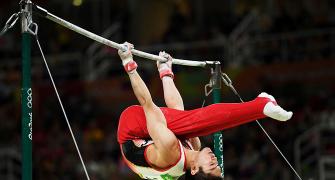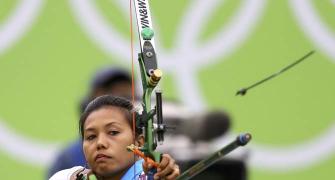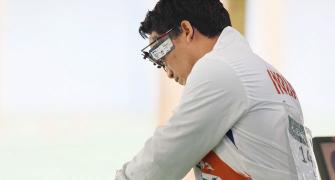‘We want them (Russia) reinstated but we do have to make sure that when the time is right we have a level playing field’
'I genuinely hope that the people watching our sport are watching with hope, excitement and belief'
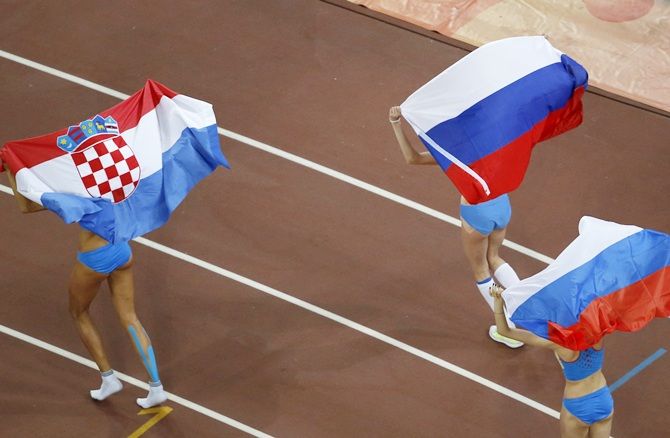
The International Association of Athletics Federations (IAAF) president Sebastian Coe announced a shake up of the organisation on Wednesday aimed at ensuring there can be no repeat of the corruption scandals that have dogged athletics’ governing body during his first, tumultuous, year in office.
The most eye catching of a raft of “governance reforms” is a commitment for the all-powerful Council to be split equally between men and women.
Currently there are six women on a 27-member Council but the target is to make it 13 of 26 by 2023. Two athletes will also be drafted onto the Council.
The other key change is the separation of anti-doping and ethics issues from the main business of running athletics – a development that became necessary after the exposure of the corrupt activities of Coe's predecessor Lamine Diack and his son, who was employed by the IAAF as a marketing consultant.
The proposals have still to be rubber-stamped by the sport’s congress but that looks a forgone conclusion as they continue to fully support the reforms Coe has put in place in his first year in office.
"It's a year that’s had its challenges but I’m very proud of the determination the organisation has shown to embrace change,” he told Reuters in an interview at the IAAF's hotel near Ipanema Beach
"It’s a landmark day today and I think our sport is stronger and more resilient for the things we’ve done.”
The IAAF’s most noteworthy action under Coe’s watch was the banning of Russia after revelations of state-sponsored doping, and he was in no mood to apologise on Thursday.
Asked at a news conference by a Russian journalist whether he thought it was fair that twice-banned American sprinter Justin Gatlin will race in Rio while Russia’s double Olympic pole vault champion Yelena Isinbayeva will not, Coe said: “Russia has let down its athletes.
“This was a cataclysmic failure to oversee and protect those athletes. We want them reinstated but we do have to make sure that when the time is right we have a level playing field.”
Coe, who won his two 1,500 metres golds in the boycotted Games of 1980 and 1984, said that the absence of Russia would not forever cloud Rio.
“The world moves on,” he told Reuters. “We’ve had boycotts before but that’s not what you think of when you think of 1976 - you think of Alberto Juantorena.
“When you remember 1980 it’s Miruts Yifter and Daley Thompson. The iconic moments of the Olympics tend to come from athletics.”
Coe said he was really looking forward to the track and field programme in Rio, which kicks off on Friday.
“I’m hugely excited – I’m a fan still at heart,” he said. "There is some amazing talent on show that would have graced any era.
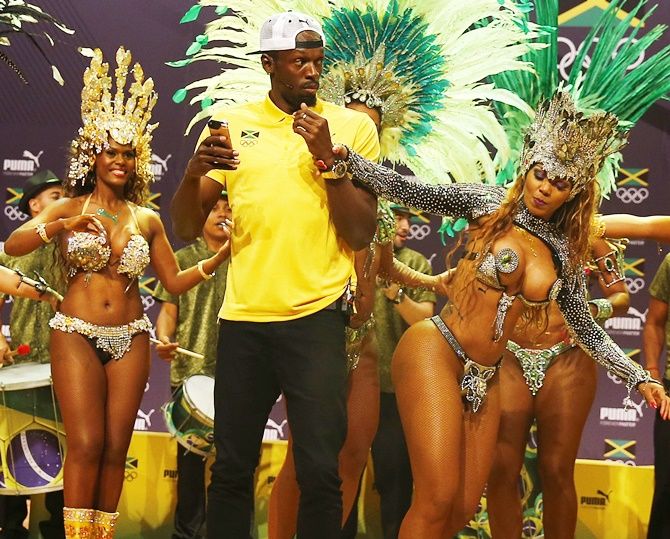
"Usain Bolt is extraordinary of course and what's great is that he really comes alive in a championship.
"Valerie Adams is also going for a triple (in the shot put) and what she has done for athletics and beyond athletics in Oceania is incredible.
"We have David Rudisha, Dafne Schippers, Mo Farah and some great head to heads - Kirani James against Wayde van Niekerk in the 400, it doesn't get any better than that."
Coe said that in his discussions with athletes over the last week there was a real focus on the event and almost no talk about Russia's ban or doping.
In the wider world, however, that cloud remains hovering above the sport, something that Coe said he recognised and understood.
"I genuinely hope that the people watching our sport are watching with hope, excitement and belief," he said.
"The last year has sorely tested all of us and all of our fans out there and our responsibility is to shape the future.
"So I genuinely hope that they feel they are watching our competitors doing it cleanly, and the vast majority are."
Exactly how many will be watching live in the stadium with its striking blue track - an Olympic first - remains to be seen, however.
Crowds in almost all the venues have been sparse and there is no chance of the Olympic Stadium matching the sold out signs that London hung on its doors every day - for the Paralympics too.
"Sales have been good but tickets are still on sale," Coe said, noting that the scheduling of some finals for after 10 p.m. local time had not helped.
"We are not confident we are going to have full houses."


